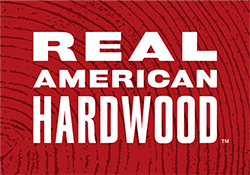Revealing Hardwood Treasure beneath Carpeting and Linoleum
If you’ve discovered that hardwood floors lie underneath your worn carpeting or linoleum and you want to reveal the beauty, you’ll need to first determine how the carpeting or linoleum was attached to the hardwood before removing.
Carpeting
– If nails or tacks were used, the carpet can be lifted with the aid of a pry bar. Once the carpet is up and the tack strips pulled up, wood putty can fill the holes left by the tacks. Extra sanding may be needed before finishing.
– If the carpeting was attached with adhesive, determine the type used. Usually a dark or tan color adhesive is tar-based and mineral spirits can be used. A light or clear adhesive (usually carpet tape) can be removed with an all-purpose adhesive remover. A yellow-looking substance is generally carpet adhesive and can be lightly scraped or chipped off. An all-purpose adhesive remover will also work. Once the adhesive is removed, sand the floor with a coarse paper and then re-sand with finer paper.
Linoleum
– Linoleum removal is somewhat different. Please take note – products manufactured before 1986 may contain asbestos. Never use a sander on any residue that may contain asbestos. If you are unsure or concerned, contact a linoleum manufacturer and use a certified asbestos removal contractor.
– If you are certain there is no asbestos, pull off as much of the linoleum surface as possible. Linoleum adhesive is usually tar-based, so once the surface is up, remove the adhesive with mineral spirits and a thin scraper. Take care not to damage the hardwood underneath by using heavy-duty scarpers. Follow the wood grain and for stubborn cases, use a heat gun to soften the adhesive. The surface can be sanded even if there is a residue of adhesive still remaining.



